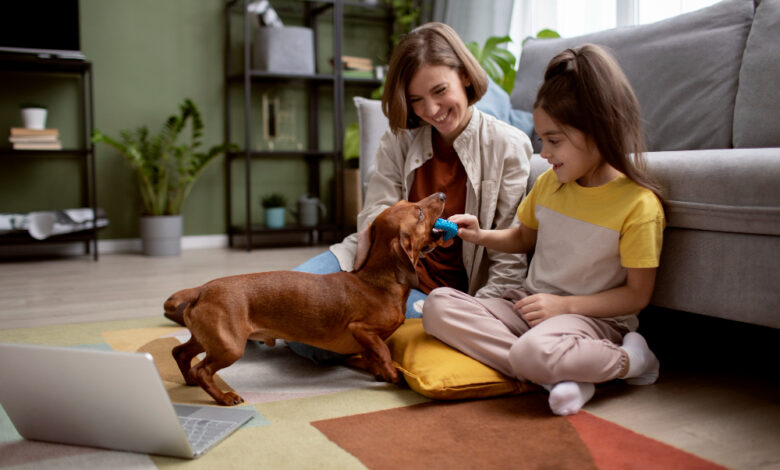
Bringing a pet into your home is one of the most rewarding and transformative decisions you can make. The right companion can add joy, laughter, and a unique sense of warmth to your daily life. However, it’s a big commitment that requires careful thought to ensure both you and your new friend are a perfect match.
Here is a comprehensive guide to help you choose the right pet for your home and prepare for a successful journey together.
The Benefits of Having a Pet
Before you even start looking, it’s worth understanding the incredible benefits that pets bring to a household:
- Companionship and Affection: Pets offer unconditional love and a constant presence. For many, they help alleviate feelings of loneliness and provide a source of comfort.
- Reduced Stress: Interacting with pets has been shown to lower cortisol levels and increase the release of oxytocin, which can reduce stress and improve overall well-being.
- Promotes an Active Lifestyle: Owning a pet, especially a dog, can encourage you to be more active, leading to more walks, runs, and playtime.
- Teaches Responsibility: Taking care of a pet—feeding them, cleaning up after them, and ensuring they have what they need—is an excellent way to teach responsibility to both children and adults.
Choosing the Right Pet for Your Home
The most important step is finding a pet that fits your lifestyle. Consider these factors before you decide.
Your Lifestyle and Living Space
- Apartment Living: If you live in a smaller space, a large, high-energy dog might not be the best fit. Consider small-breed dogs, cats, or other small animals like hamsters or rabbits.
- Activity Level: Are you an active person who loves to hike and run? A high-energy dog like a Border Collie might be a great choice. If you prefer a more relaxed lifestyle, a cat or a lower-energy dog breed might be better.
- Work Schedule: If you work long hours, a dog might feel lonely and anxious. A cat, which is generally more independent, might be a better fit. Or, consider getting a pair of small animals that can keep each other company.
Common Pet Choices and Their Needs
- Dogs: They are known for their loyalty and companionship. However, they require significant time for training, exercise, and socialization. Their needs vary greatly by breed, so research is crucial.
- Cats: Generally more independent than dogs, cats are a great choice for those with busier schedules. They are excellent companions and require less space, but they still need affection, playtime, and mental stimulation.
- Small Animals (Rabbits, Guinea Pigs, Hamsters): These are a good option for families who want a pet but have limited space or time for daily walks. They are typically kept in enclosures but still need regular cleaning and daily interaction.
- Birds: Birds can be wonderfully social and entertaining companions. Their needs vary by species, but they often require a large cage, specific diets, and a stimulating environment to thrive.
- Fish: While not a cuddly pet, a fish tank can be a calming and beautiful addition to a home. Their main requirements are consistent tank maintenance and a well-balanced diet.
The Responsibilities of Pet Ownership
Before you bring a pet home, be honest with yourself about the commitment involved.
- Financial Costs: Pet ownership is expensive. You’ll need to budget for food, toys, grooming, training, and, most importantly, veterinary care. Unexpected medical emergencies can be very costly.
- Time and Commitment: All pets, even fish, require your time and attention. Be prepared for daily feeding, cleaning, and providing love and enrichment.
- Training and Socialization: Training is essential for the safety and happiness of both you and your pet. It helps them learn good behaviors and strengthens your bond.
Where to Find Your New Best Friend
Once you’ve decided on the type of pet that’s right for your home, it’s time to find them.
- Adoption: The best option is to adopt from a local animal shelter or rescue organization. You’ll be giving a loving animal a second chance at life, and many shelters offer a range of animals that are already spayed/neutered and have received their first vaccinations.
- Reputable Breeders: If you have your heart set on a specific breed, look for a reputable, ethical breeder. Do your research, visit their facility, and ask questions to ensure the animals are healthy and well-cared for. Avoid pet stores that get their animals from large-scale commercial breeders.
Choosing a pet is a significant decision, but with proper preparation, you can find a wonderful companion that will enrich your life for years to come.





